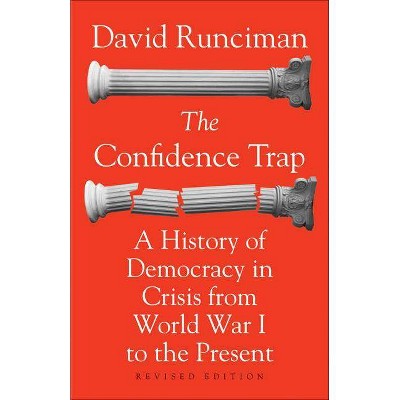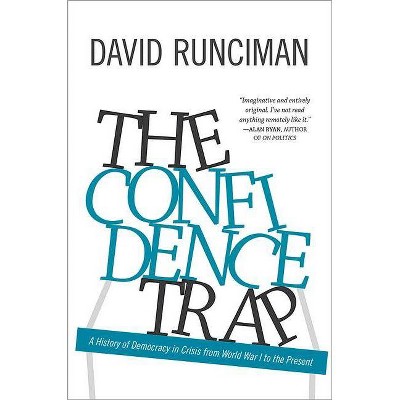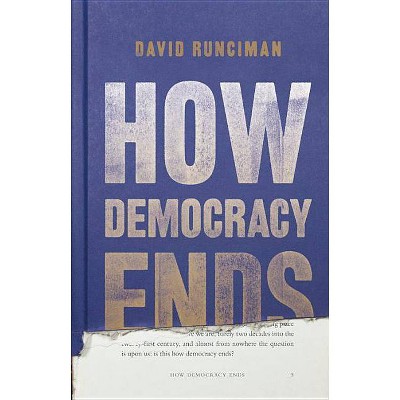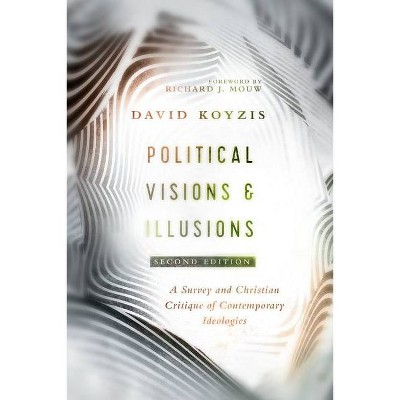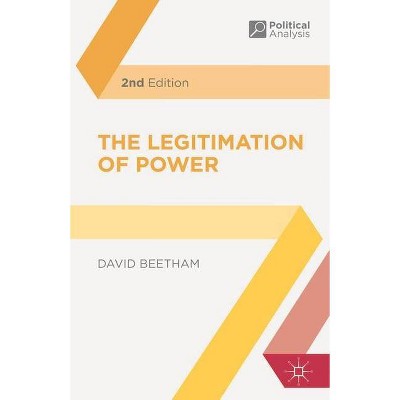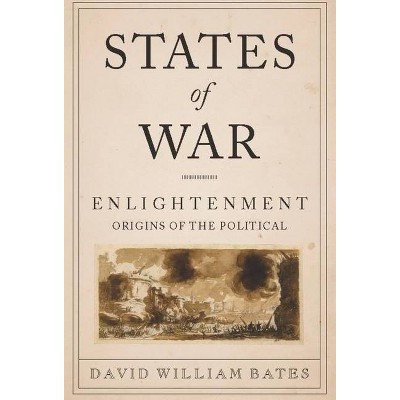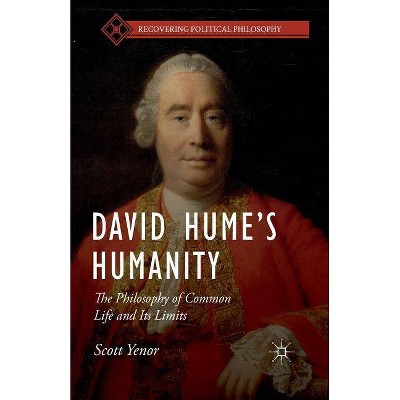Political Hypocrisy - 2nd Edition by David Runciman (Paperback)
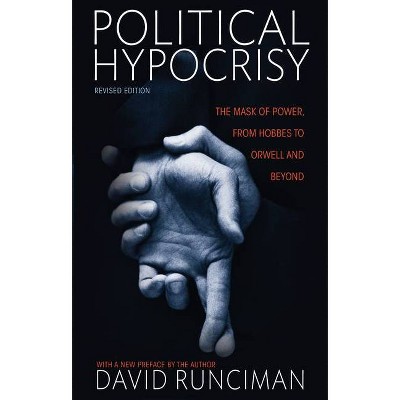
Similar Products
Products of same category from the store
AllProduct info
<p/><br></br><p><b> About the Book </b></p></br></br>A critical assessement of the problems of sincerity and truth in politics argues that we should accept hypocrisy as a fact of politics without resigning ourselves to it or embracing it, drawing on the lessons of such thinkers as Hobbes, Mandeville, Jefferson, Bentham, Sigwick, and Orwell.<p/><br></br><p><b> Book Synopsis </b></p></br></br><p>What kind of hypocrite should voters choose as their next leader? The question seems utterly cynical. But, as David Runciman suggests, it is actually much more cynical to pretend that politics can ever be completely sincere. <i>Political Hypocrisy </i>is a timely, and timeless, book on the problems of sincerity and truth in politics, and how we can deal with them without slipping into hypocrisy ourselves. Runciman draws on the work of some of the great truth-tellers in modern political thought--Hobbes, Mandeville, Jefferson, Bentham, Sidgwick, and Orwell--and applies his ideas to different kinds of hypocritical politicians from Oliver Cromwell to Hillary Clinton. He argues that we should accept hypocrisy as a fact of politics--the most dangerous form of political hypocrisy is to claim to have a politics without hypocrisy. Featuring a new foreword that takes the story up to Donald Trump, this book examines why, instead of vainly searching for authentic politicians, we should try to distinguish between harmless and harmful hypocrisies and worry only about the most damaging varieties.</p><p/><br></br><p><b> From the Back Cover </b></p></br></br><p> "David Runciman's great achievement is to take the notion of hypocrisy, well-known as a term of moral disapprobation, and to relocate it as a central concept in the history of rational liberal discourse. This illuminating, wide-ranging, and subtle study presents the exposing of hypocrisy, and its simultaneous retention, as an uncomfortable and largely deliberate feature of the writings of some major political theorists and disputants from Hobbes to the present, and argues persuasively and with characteristic elegance that hypocritical deception is necessarily embedded in political life and language."<b>--Michael Freeden, University of Oxford</b></p><p>"To say [Runciman] is a fan of hypocrisy is an understatement. He loves it, studies it, defines and cross-references it, deploring those who fail to see its virtues in binding together the social contract."<b>--Simon Jenkins, <i>Sunday Times</i></b></p><p>"A fascinating, stimulating read. It treats an issue of immediate political interest in a subtle and engaging way, finding in the history of political liberalism a wealth of insights relevant to contemporary politics. Anyone discussing political hypocrisy in the future will have to deal with this book."<b>--Bryan Garsten, Yale University</b></p><p>"David Runciman's <i>Political Hypocrisy</i> is a superb, beautifully written book on a crucial topic, unmatched in the field and likely to shape it for a long time to come. I was consistently surprised and enlightened by its arguments."<b>--Andrew Sabl, University of California, Los Angeles</b></p><p>"A deep and thought-provoking work."<b>--<i>New York Observer</i></b></p><p>"In the excellent<i>Political Hypocrisy</i>, British journalist David Runciman uses the 2008 campaign to test his thesis that hypocrisy and anti-hypocrisy are joined in a 'discrete system' and that our obsession with this antagonistic tango is making modern politics impossible."<b>--D.N. Ghosh, <i>Economic and Political Weekly</i></b></p><p/><br></br><p><b> Review Quotes </b></p></br></br><br><i>Political Hypocrisy</i>is not just another denunciation of politicians as liars. Instead, it offers us a tour, from Hobbes and Mandeville to Bentham and Orwell. Runciman is best on the American revolutionaries and our eminent Victorians, perhaps because both the US war of independence and British empire required self-aware democratic politicians to gloss over the gaps between their proclaimed beliefs and their actual behaviour.<b>---Richard King, <i>Australian Literary Review</i></b><br><br>[<i>Political Hypocrisy</i>] is highly readable and contains a plethora of shrewd and quotable remarks. . . . What struck a chord with me was [Runciman's] gentle demolition of the idea that a politician's profession of his own sincerity, or passionate belief, proves anything at all.<b>---Samuel Brittan, <i>Financial Times</i></b><br><br>A subtle, impressively intelligent discussion of a topic that's on just about everybody's mind.<b>---David Willetts, <i>Prospect</i></b><br><br>A very intelligent, subtle, and learned guide to the classics and to the pre-eminent historical examples of hypocrisy from Mandeville and Hobbes to Jefferson and the Victorians.<b>---David Martin, <i>Times Literary Supplement</i></b><br><br>Journalists and pundits notoriously pounce on any evidence of hypocrisy. . . . Runciman takes a far more textured, sophisticated approach to the phenomenon in<i>Political Hypocrisy</i>, a timely, long overdue study of one of public life's in-your-face puzzles.<b>---Carlin Romano, <i>Philadelphia Inquirer</i></b><br><br>More praise for Political Hypocrisy<b>---Tim Dunne, <i>Times Higher Education</i></b><br><br>One of Sunday Times's Best Books in Politics for 2008<br><br>Runciman's book should be appreciated for its attempt to present an alternate--and historical--approach to the issue of political hypocrisy. He successfully delves into the many fine distinctions that make up each theorist's approach and response to hypocrisy, which is particularly useful for a topic that so utterly lacks a clear division between black and white, and what is right and wrong.<b>---Kiku Huckle, <i>Peace and Justice Studies</i></b><br><p/><br></br><p><b> About the Author </b></p></br></br><b>David Runciman</b> is professor of politics at the University of Cambridge and a fellow of Trinity Hall. His books include <i>The Confidence Trap</i> and <i>The Politics of Good Intentions</i> (both Princeton). He writes regularly about politics for the <i>London Review of Books</i>.
Price History
Price Archive shows prices from various stores, lets you see history and find the cheapest. There is no actual sale on the website. For all support, inquiry and suggestion messagescommunication@pricearchive.us
